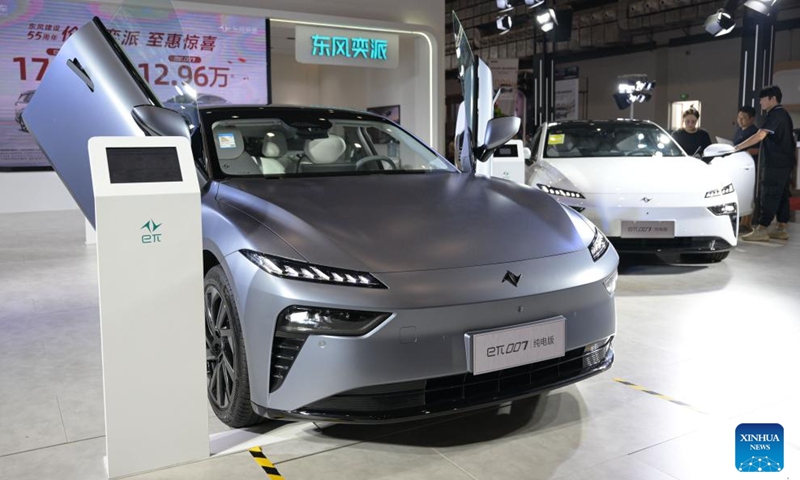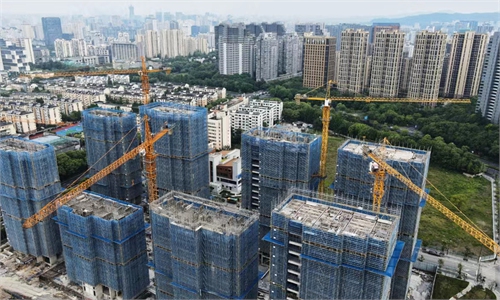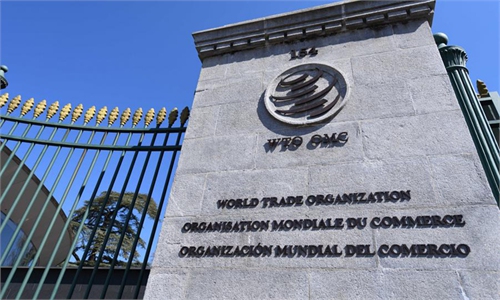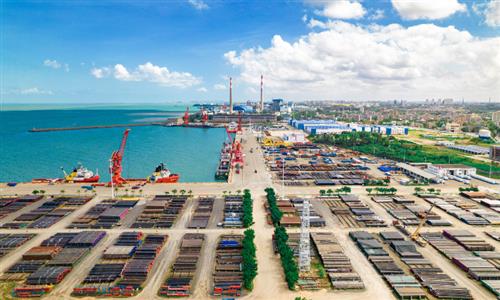China to plan car trade-in follow-up policy in 2025 in advance to stabilize market expectations: Commerce Ministry

A Dongfeng electric car is seen during the 2024 Hainan Autumn Auto Show in Hainan International Conference and Exhibition Center in Haikou, capital of south China's Hainan Province, Sept. 16, 2024. The show was held from Sept. 13 to 16, with nearly one hundred car manufacturers showcasing their products on a display area of more than 50,000 square meters. About 70 percent of the exhibited vehicles were new energy vehicles. (Photo: Xinhua)
China's Ministry of Commerce (MOFCOM) will plan the car trade-in follow-up policy in 2025 in advance, while scientifically evaluating relevant policy achievements this year in a bid to stabilize market expectations to facilitate used vehicle transactions, Song Yingjie, an official with the MOFCOM department for consumption promotion, said on Thursday.
China has seen a marked rise this year in car trade-ins thanks to government policy support designed to benefit consumers.
Song said at the 2024 Auto Finance Industry Summit that the ministry has received over 4 million subsidy applications for trade-ins of passenger vehicles to date under a mass renewal program initiated early this year, the Securities Times reported.
The auto trade-in subsidies are part of a national program unveiled in March to boost domestic auto consumption and support the economy through equipment upgrades and consumer goods trade-ins.
Currently, consumers trading in an old car for a new-energy vehicle are entitled to a 20,000 yuan ($2,781) subsidy, while those replacing old car with a fossil fuel car will get 15,000 yuan.
"Thanks to the continuous improvement in consumer expectations and the solid progress in high-quality economic development, China's automobile industry has maintained an upward growth so far in 2024, with automobile manufacturing and sales both showing stable growth," Cui Dongshu, secretary-general of the China Passenger Car Association, told the Global Times on Thursday.
According to latest data released by the National Bureau of Statistics (NBS), China's automobile retail sales in October reached a total value of 445.2 billion yuan, up 3.7 percent yar-on-year.
The car trade-in policy is expected to additionally ramp up the sales of over 1.6 million passenger vehicles in 2024, with retail passenger vehicle sales projected to grow by 5 percent this year, Wang Du, deputy head of the China Automobile Dealers Association, said at the summit.
He called for more financial institutions to provide greater support for manufacturers and dealerships to stabilize the car supply chain and offer customized services for consumers.
Cui expressed expectations that the car trade-in policy will continue in 2025 while more supportive policies such as higher tax incentives could be introduced to drive car consumption and back up economic growth.
Driven by robust automobile and other product sales, the country's retail sales of consumer goods went up 4.8 percent year-on-year in October, quickening from the 3.2 percent increase in September, according to the NBS.
Thanks to the implementation of existing policies and the rollout of a package of incremental pro-growth policies, major economic indexes and market confidence displayed some improvement last month, Wen Bin, chief economist at China Minsheng Bank, told the Global Times.
He said that government agencies and localities are expected to accelerate the implementation of the incremental policies to shore up economic growth, and try to achieve annual economic and social development goals.



